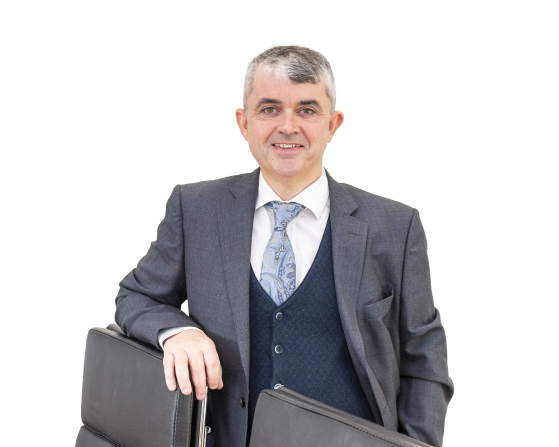Inquest into deaths of Marie Downey and four-day-old Darragh at CUMH taking place
https://www.irishtimes.com/news/crime-and-law/courts/coroner-s-court/man-says-deaths-of-wife-and-baby-could-have-been-avoided-if-epilepsy-guidelines-followed-1.4730241
By Olivia Kelleher for The Irish Times
A man whose wife and newborn son died at Cork University Maternity Hospital (CUMH) has told their inquest he believes they would still be alive if staff had followed guidelines for the care of pregnant women with epilepsy.
Marie Downey (36), who lived in Knockanevin near Kildorrery, Co Cork, was found dead on the floor of her private room at CUMH on the morning of March 25th, 2019. Four-day-old Darragh was found critically injured under his mother and died the following evening.
Kieran Downey told the coroner that the day his wife died was his birthday and that his plan had been to collect her and his son after they were discharged from hospital. He had dropped their “excited” sons to créche that morning.
Ms Downey was diagnosed with epilepsy in 2010 but he said her health was good and seizures happened rarely.
Mr Downey said he received a phonecall from the hospital on the morning March 25th telling him to come in. He said he initially thought this related to registering the baby’s name, but that he was alarmed when he was advised to bring someone with him.
He tried to call Ms Downey’s phone but there was no answer. He went to CUMH and was informed that she had died and that Darragh “was part of the story”. The baby died later and Mr Mr Downey said his grief was exacerbated by the fact that his wife’s postmortem was carried out in Cork but Darragh was sent to Dublin to be examined, “which was horrific”.
“We didn’t know if we would be able to have a funeral with Darragh and Marie together,” he said.
Medical evidence as to the causes of death has not yet been heard but Mr Downey told coroner Philip Comyn that he believed the deaths could have been prevented by better communication between medical staff about his wife’s epilepsy.
“There is a whole list of things that should have been done that weren’t and if they were we would be sitting at home without a care in the world. The circumstances of their deaths could have been prevented at many different points along the way,” he said.
‘Kept changing’
Mr Downey expressed his belief that there was a lack of communication between the obstetrician and the neurologist treating his wife in relation to her care and the dangers posed by her epilepsy. He said he was “drip fed” information after the death of his wife and son and that the versions of the story “kept changing”.
He said that his wife rang the bell for help from her private room nine times between midnight and 3.30am on the night before she died but she “didn’t seem to be a priority”.
He said he was stunned to find out after Ms Downey’s death that she had experienced epileptic seizures three days giving birth to their son Seán in 2016. Mr Downey felt “hit by a tonne of bricks” when he came across this information.
Mr Downey said this statement in a draft HSE report was “news to me as it was never communicated to me”. He stated that this was “soul destroying” news as it would have had a bearing on how she was treated during her next pregnancy.
“It seemed to have been known (in the hospital) and yet 2½ years later we were in the same position.”
Mr Downey said his wife and son were “completely forgotten” by the hospital.
He said he looked up the Maternity Patient Safety Statement for March 2019 six weeks after the deaths and found they had not been recorded. He said he was shocked by what he perceived as a “lack of transparency” by the hospital.
“ If you can’t even do basic recording how can anyone trust the system?” he asked. “It’s a box-ticking exercise. These were people. They are our loved ones. They could be anyone’s loved ones and they were not given the respect to record the factual information to be presented to the public.”
Apology
Conor Halpin SC, for CUMH, apologised to Mr Downey for the failure to record the deaths in the monthly statement, but he said they were reported to the National Register of Perinatal Deaths.
Mr Downey said there was a lot changes in regard to the story of what occurred in the hours before the tragedy. “I questioned the fact that I saw Marie’s signature on the chart at 3.30am and that she had written down breast-fed left breast’.”
The review committee said it would look into the matter and later came back to say that Darragh would have been taken away from 3am to 7am so Ms Downey could get ample sleep.
“I would of thought that four hours was reasonably good sleep to get. But I asked to check the CCTV and again after another review meeting they told me that Darragh was actually taken away at 3.59am…and had been returned to Marie at 6.34am, so 2½ hours sleep which shocked me,” he said.
“I suppose because lack of sleep and exhaustion are reason why Marie certainly got seizures. So I wouldn’t have thought she would ring the bell after such little sleep to feed Darragh when it was not required.”
Mr Downey said that he had no faith in the HSE and that implementation plans to prevent perinatal deaths “meant nothing”. He added that Ms Downey had expressed apprehension about breastfeeding in relation to having epileptic seizures but that she was “left to breast-feed alone” after a traumatic birth where she experienced significant blood loss.
The inquest continues.
